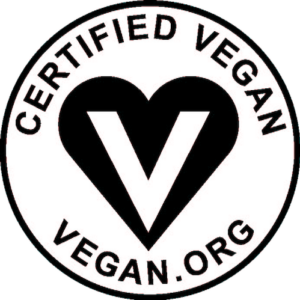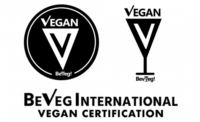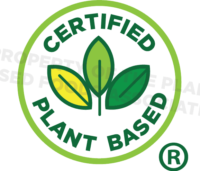In the consumer packaged goods (CPG) industry, labels wield remarkable influence. Among them, “vegan” is gaining prominence as consumer preferences shift towards more sustainable and ethical food choices. But how do you know if your product is vegan?
This article will explore how CPG brands can determine if a product qualifies as vegan. We will discuss the regulatory landscape, consumer preferences, and the role of third-party certifications. You’ll also discover a tool that instantly determines if your product qualifies for a vegan attribute.
Consumer Interest and Perception
Consumer demand for vegan products is increasing. In 2020 the vegan food market was valued at $19.7 billion and is projected to reach $36.3 billion by 2030. The drivers in this growing market are health, animal welfare, and environmental concerns, as well as personal dietary preferences and needs.
You may already know if your product is or is not considered vegan, but if you aren’t sure, it may be because your product is accidentally vegan. There are many popular food products, like Nabisco’s Oreos, with ingredients that happen to be animal-free, or accidentally vegan. These foods may be enjoyed by vegan consumers and people with common food allergies, like milk or eggs.
It’s also important to consider the preferences of your target demographics when considering a vegan label. Some consumers may prefer products with an explicit vegan label or symbol; others may be deterred if you put the claim on your product’s physical packaging. Understanding your ideal customer’s preferences, perceptions, and shopping habits is key to effectively leveraging a vegan claim.
The Regulatory Landscape
Unlike terms such as “organic” or “gluten-free,” there is no established regulatory definition for “vegan” in the United States. The regulatory ambiguity leaves room for interpretation and can cause inconsistencies in labeling, which can be confusing for both brands and consumers.
Vegan does not have a regulatory definition in the United States or standards for what vegan products can and cannot contain.
So yes, this means the vegan label you see on products at the grocery store does not have a legal, standardized definition. However, this does not mean brands can intentionally mislead consumers. The U.S. FDA and USDA mandate that food labels must be truthful and not misleading. If you do decide to label your product as vegan you should consult with experts, use trusted resources, like our Claim Finder tool, or third-party certifying agencies. Being intentional with your attributes ensures you won’t mislead consumers and can help connect you with shoppers in your target demographic.
The Role of Third-Party Certifications
Third-party certifications can help brands and consumers provide confidence and certainty in absence of regulations. These certifications often provide assurance to a certain community that a product adheres with their dietary or lifestyle needs. Certifications offer an opportunity for improved standardization, trust, and transparency within the food industry. This can be especially important for claims, like vegan or plant-based, that have no regulatory definition.
There are many vegan certifications and they provide consumers with assurance that a product’s ingredients and manufacturing processes meet specific standards. The process typically involves an initial application, disclosure of ingredients, and a type of audit or review prior to certification.
Common Vegan Certifications in the U.S.
- Vegan Action – Food products eligible for this certification can’t contain meat, fish, fowl, animal by-products, eggs, milk, honey, insects, or sugar filtered with bone char. Products made on equipment shared with non-vegan products are allowed with documentation of proper cleaning methods.
Their globally recognized certification process is managed in-house and can take 4-8 weeks, depending on the number of products and ingredients submitted. They have worked with over 1,500 companies and have certified more than 15,000 products.
You can expect a $100 non-refundable application fee that can be applied towards licensing, pending approval. The annual cost of the full licensing fee for this Certified Vegan label depends on your annual revenue. This fee starts at $150 for companies with up to $15,000 in annual revenue and caps at $3,000 for those with $10 million or more in annual revenue.
Full and up-to-date information can be found on Vegan.org.
- BeVeg Certified – Eligible products must meet the BeVeg Vegan Standards, in short there can’t be any animal ingredients or animal by-products in your manufacturing. Hundreds of food products, restaurants, wines, businesses, and organizations have been BeVeg certified. This process is ISO accredited, maintained by third-party technical administrators, and requires disclosures beyond Truth in Labeling Laws.
Applications for Vegan certification are accepted globally and can take anywhere from seven to sixty days depending on a variety of factors. There are 5 steps in this process, application, review, auditing and labs, contracts, and final approval to use the certified logo. You can request a free, custom quote to determine your annual audit fee and certification fee.
Full and up-to-date information can be found on BeVeg.
- Plant Based Foods Association – While they don’t use the term vegan, this certification requires products to be free from animal-derived ingredients. The Certified Plant-Based process is independently verified by NSF International and has over 1,100 products in its database.
To apply for this certification you will need to submit documentation of your product formula, spec sheet, and information on your manufacturing facility. Applicants can expect a $150 per formula annual fee plus a $50 fee for each additional flavor variant. Renewing your certification will cost $50. Additional fees may apply to expedited application review, label review, formulation or supplier changes, among other factors. If your company is a PBFA member the licensing fee per product is waived.
Full and up-to-date information can be found on PBFA.
If your target consumer values a third-party certification, this may be a worthy investment. When choosing a certification for your products keep in mind that each certifying agency has a unique process and accompanying fees. Some certification pricing is based on a company’s annual revenue, some charge a flat rate fee, and others on the number of products. For small brands, a third-party certification may not be in your current budget. But this doesn’t mean you’re stuck without other resources to determine if your product qualifies for a vegan claim.
A Claim Finder Tool Built for All Brands
EatQ’s Claim Finder tool uses science-backed, regulatory-compliant algorithms that let you instantly discover what attributes your product qualifies for. This tool uses AI to parse through an ingredient list to quickly and effectively determine a product’s qualified attributes. The Claim Finder provides you with a robust list of attributes, beyond what you have on physical product packaging, to fuel your e-commerce success.
How It Works
EatQ collaborated with food scientists and nutritionists to build its attribution technology based not only on what the product contains but how the product’s ingredients are derived.
For EatQ to consider a product to be qualified for a vegan claim, it cannot contain animal ingredients nor have a potential of being made by animals.
This may appear easy because some ingredients, like pork, eggs, beef, and honey, are obviously animal-based, and are easy to identify as not vegan. Others are easy to determine as vegan because they are clearly not made from animals, such as spinach, nuts, olive oil, or wheat. For products with multiple ingredients, determining their vegan status can be more challenging.
The algorithms were built to diligently sift through additives, preservatives, sweeteners, and many other ingredients that may be derived from animal ingredients. If there is a questionable ingredient, especially one that may concern people with severe food allergies, EatQ will always err on the side of caution.
In addition to attributes derived by the Claim Finder, EatQ’s extensive database is able to recognize and identify products with third-party certifications. This adds another layer of verification to the resulting list of qualified attributes.
The Takeaway
Research indicates that consumer demand for vegan products is on the rise. It’s crucial for brands to understand the preferences of their target consumer and align their messaging and attributes accordingly. While third-party certifications are a great way to earn shopper’s trust, they can be costly and have a lengthy application process.
Thankfully EatQ is an affordable, reliable tool that can deliver attributes within seconds. With a rigorous approach to defining and verifying claims, CPG brands at all stages can confidently navigate the complex landscape of vegan attribution.
About EatQ
EatQ is a leading product data platform that specializes in helping small, health, and sustainability-focused brands differentiate themselves in online grocery retail. The EatQ platform provides affordable pre-sales planning, marketing, and research tools including Competitor Comparison and Claim Finder features.





